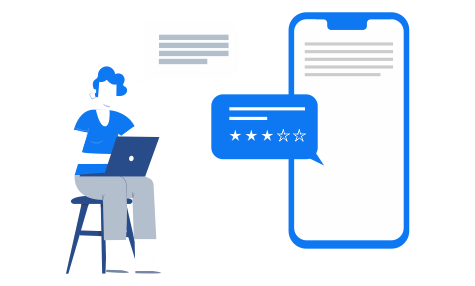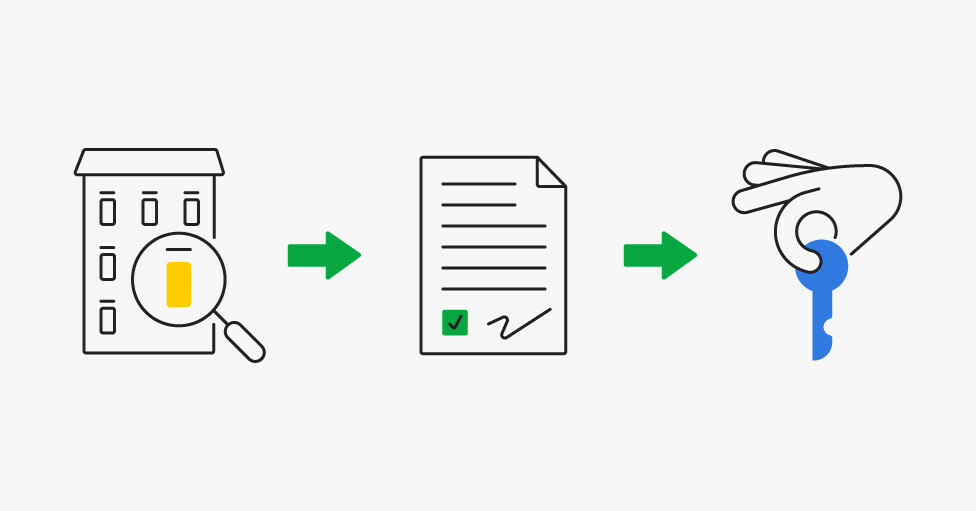Maximizing Efficiency and Profits with the Best Feedback Management Tools for Real Estate Industry
They trust us:





Best Feedback Management Tools For Real Estate Industry

(source: https://images.app.goo.gl/6GRTfyY4eVYo1qdRA )
Real estate is a very competitive industry and it is important for agents to be up-to-date with the latest trends. The best way for agents to stay ahead of the curve is by using feedback management tools. Feedback management is a critical part of any business. By managing feedback effectively, you can ensure that your customers are happy and recommend your business to others.
There are many different types of feedback management tools available on the market today. Some companies use email as their main method of communication while others rely on phone calls or social media to communicate with customers. All these different methods can be used simultaneously with different software solutions to get the most out of them.
Feedback management is a key skill for any business. It helps them grow and improve their services. Real estate agencies need to manage feedback in order to improve their services and increase their market share.
What is Usersnap?
Usersnap is a visual feedback and bug tracking tool for software development teams. It allows users to capture screenshots, annotate them, and add comments, all within the context of the website or application being tested. Usersnap integrates with popular project management tools, such as Jira, Trello, Asana, and GitHub, making it easy to manage feedback and issues in one place.
What are the features of Usersnap?
Some of the key features of Usersnap include:
In-browser feedback: Usersnap allows users to provide feedback directly within the browser, without needing to switch to a separate feedback tool or email.
Screenshots and annotations: Users can take screenshots of the website or application and add annotations to highlight specific areas or issues.
Issue tracking: Usersnap creates a detailed bug report that includes information such as browser and device information, steps to reproduce the issue, and any additional comments or context.
Integrations: Usersnap integrates with popular project management and collaboration tools, making it easy to manage feedback and issues in one place.
Customizable feedback forms: Usersnap allows users to create custom feedback forms with specific questions or fields to gather more detailed feedback from users.
What is the pricing of Usersnap?
The pricing for Usersnap varies depending on the plan you choose. They offer a 14-day free trial, and then their plans start at $49/month for up to 3 users. The pricing increases based on the number of users and the features included in the plan.
What is Beamer?
Beamer is a LaTeX document class designed for creating presentations. It allows users to create high-quality, professional-looking slideshows, which can include text, images, tables, graphs, animations, and even videos.
What are the features of Beamer?
Here are some of the features of Beamer:
Customizable themes: Beamer comes with several pre-defined themes, and users can also create their own custom themes to match their branding or style.
Multiple output formats: Beamer can generate slideshows in multiple output formats, including PDF, HTML, and various presentation tools like PowerPoint.
Animations: Beamer allows for the inclusion of animations and transitions between slides, which can help to make presentations more engaging.
Mathematical equations: As a LaTeX document class, Beamer supports mathematical equations and symbols, making it an ideal choice for technical presentations.
Collaboration: Beamer supports collaboration via version control systems like Git, making it easier for multiple users to work on a single presentation.
What is the pricing of Beamer?
Beamer is open-source software and is available for free under the LaTeX Project Public License.

What is Userback?
Userback is a web-based tool that allows website owners, designers, and developers to collect feedback and bug reports from their users. With Userback, users can easily create customizable feedback widgets that can be added to any website or web application.
What are the features of Userback?
Some of the key features of Userback include:
Customizable feedback forms: Users can create custom feedback forms that can be tailored to their specific needs. These forms can include a variety of input fields, including text, images, and file uploads.
Easy integration: Userback can be easily integrated with popular website platforms like WordPress, Shopify, and Magento, as well as with custom-built websites.
Collaborative feedback: Users can collaborate on feedback and bug reports by adding comments and annotations directly on screenshots of the website or web application.
Project management: Userback includes project management tools that allow users to organize and prioritize feedback and bug reports.
Custom branding: Userback allows users to customize the look and feel of their feedback widgets with their own branding.
What is the pricing of Userback?
Userback offers a range of pricing plans, including a free plan that allows users to create up to 10 feedback projects with limited features. Paid plans start at $49 per month for unlimited projects and additional features.
What is Swell?
Swell is a cloud-based platform that provides e-commerce businesses with tools to manage their customer engagement, loyalty, and retention. Swell allows businesses to build and customize loyalty programs, create targeted email campaigns, and collect customer feedback through surveys and reviews.
What are the features of Swell?
Here are some of the key features of Swell:
Loyalty programs: Swell allows businesses to create customizable loyalty programs that reward customers for repeat purchases, referrals, and social media engagement. These programs can be tailored to fit the business’s brand and goals.
Email marketing: Swell provides businesses with email marketing tools to create and send targeted campaigns to their customers. These campaigns can be personalized based on customer behavior, preferences, and purchase history.
Reviews and feedback: Swell allows businesses to collect customer feedback and reviews through automated surveys and follow-up emails. These reviews can be displayed on the business’s website or social media channels, helping to improve customer trust and conversion rates.
Analytics and reporting: Swell provides businesses with real-time data and insights on their customer engagement and loyalty programs. This data can be used to optimize campaigns and improve customer retention.
What is the pricing of Swell?
Swell offers a range of pricing plans based on the size of the business and its specific needs. Prices start at $29 per month for the basic plan and go up to $299 per month for the enterprise plan with more advanced features and support. Swell also offers a free trial to test out the platform.
What is zipBoard?
zipBoard is a web-based platform that allows users to collaborate on website and e-learning content review and feedback. The platform is designed to simplify the review process by providing a centralized location for stakeholders to provide feedback, track changes, and collaborate with each other.
What are the features of zipBoard?
Some of the key features of zipBoard include:
Visual feedback: zipBoard allows users to provide feedback directly on website or e-learning content using a visual interface. Users can highlight sections of the content, add comments, and leave notes.
Collaboration: zipBoard provides a centralized location for all stakeholders to collaborate on website or e-learning content reviews. Users can share feedback and comments with each other, assign tasks, and track progress.
Integration: zipBoard integrates with popular project management and development tools such as Trello, Asana, and GitHub, allowing users to easily manage tasks and track changes.
Version control: zipBoard provides version control tools that allow users to keep track of changes made to website or e-learning content over time.
Mobile support: zipBoard has a mobile app that allows users to provide feedback and collaborate on content reviews from their mobile devices.
What is the pricing of zipBoard?
zipBoard offers a range of pricing plans based on the size of the team and the specific needs of the business. Prices start at $49 per month for the basic plan and go up to $499 per month for the enterprise plan with more advanced features and support. zipBoard also offers a free trial to test out the platform.
What is LoyaltyLoop?
LoyaltyLoop is a cloud-based customer feedback and loyalty management platform that helps businesses collect, analyze and act on customer feedback to improve customer satisfaction, retention, and referrals. The platform offers a range of tools to help businesses gather feedback from customers, identify areas for improvement, and take action to improve customer experience.
What are the features of LoyaltyLoop?
Here are some key features of LoyaltyLoop:
Feedback and surveys: LoyaltyLoop offers customizable surveys that can be sent to customers through email or SMS. Surveys can be customized to gather specific information, such as customer satisfaction, Net Promoter Score (NPS), and customer loyalty.
Analysis and reporting: LoyaltyLoop provides real-time data analytics and reporting to help businesses understand customer feedback and identify trends. Businesses can use this data to take action to improve customer experience and retention.
Loyalty programs: LoyaltyLoop provides businesses with tools to create and manage loyalty programs that incentivize customers to make repeat purchases and refer others. These programs can be customized to fit the business’s specific needs and goals.
Reputation management: LoyaltyLoop helps businesses manage their online reputation by monitoring customer reviews on popular review sites and social media platforms. This allows businesses to quickly respond to customer feedback and address any issues.
Integration: LoyaltyLoop integrates with popular CRM, e-commerce, and marketing automation platforms, including Salesforce, HubSpot, and Shopify, to help businesses streamline their customer feedback and loyalty programs.
What is the pricing of LoyaltyLoop?
LoyaltyLoop offers a range of pricing plans based on the number of surveys sent per month and the features needed. Prices start at $49 per month for the basic plan and go up to $499 per month for the enterprise plan with more advanced features and support. LoyaltyLoop also offers a free trial to test out the platform.
What is ProductLift?
ProductLift is a platform that helps developers and product teams automate their app releases, simplify app deployments, and reduce downtime by providing a single interface to manage all of their releases.
What are the features of ProductLift?
Some key features of ProductLift include:
Release automation: ProductLift helps teams automate their app releases by providing an easy-to-use interface for managing app versions, release notes, and deployment settings.
Integrations: ProductLift integrates with popular development tools such as GitHub and Bitbucket, as well as with services like Slack and PagerDuty to help teams stay connected and informed throughout the release process.
Rollback capabilities: In the event of a failed release, ProductLift makes it easy for teams to quickly roll back to a previous version of their app, minimizing downtime and reducing the impact on users.
Analytics and reporting: ProductLift provides real-time analytics and reporting to help teams monitor their releases and identify areas for improvement.
Security and compliance: ProductLift is designed with security and compliance in mind, with features such as two-factor authentication, data encryption, and SOC 2 compliance.
What is the pricing of ProductLift?
ProductLift offers a range of pricing plans based on the number of active apps and team members, starting at $49 per month for the basic plan and going up to $249 per month for the enterprise plan with more advanced features and support. ProductLift also offers a free trial to test out the platform.
What is Airfocus?
Airfocus is a cloud-based platform designed to help teams prioritize and manage their projects and product roadmaps. The platform offers a range of features to help teams visualize their priorities, collaborate on decision-making, and track progress towards their goals.
What are the features of Airfocus?
Here are some key features of Airfocus:
Prioritization: Airfocus helps teams prioritize their projects and product features by providing a visual framework that allows users to weigh the importance of different items against each other. This framework can be customized to fit the team’s specific needs and goals.
Collaboration: Airfocus provides tools for teams to collaborate on decision-making, including comments, feedback, and voting. This allows team members to share their opinions and insights on prioritization decisions.
Roadmap management: Airfocus provides tools for teams to create and manage their product roadmaps, including timelines, milestones, and dependencies. This allows teams to visualize their progress towards their goals and make adjustments as needed.
Integration: Airfocus integrates with popular project management and development tools such as Trello, Asana, Jira, and GitHub, allowing teams to easily manage tasks and track progress.
Analytics and reporting: Airfocus provides real-time analytics and reporting to help teams monitor their progress and make data-driven decisions.
What is the pricing of Airfocus?
Airfocus offers a range of pricing plans based on the size of the team and the specific needs of the business. Prices start at $29 per month for the basic plan and go up to $599 per month for the enterprise plan with more advanced features and support. Airfocus also offers a free trial to test out the platform.
What is TestMonitor?
TestMonitor is a web-based software application designed to help educational institutions, businesses, and certification organizations create and manage online assessments. TestMonitor allows users to create, deliver, and score online tests and assessments, with a focus on security, ease of use, and customization.
What are the features of TestMonitor?
Some of the key features of TestMonitor include:
Test creation: TestMonitor allows users to create customized tests, including multiple choice, open-ended, and essay questions. Tests can also include multimedia elements, such as images and videos.
Test delivery: TestMonitor provides a secure platform for delivering tests, with options for timed tests, randomized questions, and custom feedback based on student responses.
Test scoring: TestMonitor automatically scores multiple-choice questions, while open-ended and essay questions can be scored manually. The software also allows for partial credit and negative scoring.
Test analysis: TestMonitor provides detailed analytics on test results, allowing users to track student performance, identify areas of weakness, and make data-driven decisions.
Security: TestMonitor is designed with security in mind, using encryption and authentication protocols to protect student data and prevent cheating.
Integrations: TestMonitor integrates with learning management systems (LMS) such as Moodle and Blackboard, as well as with other third-party tools such as Zapier and Salesforce.
What is the pricing of TestMonitor?
TestMonitor offers a range of pricing plans based on the number of users and tests. The pricing starts at $199 per month for up to 50 users and includes unlimited tests, while custom pricing is available for larger organizations. A free trial is also available for new users to try out the software.
What is UserTesting?
UserTesting is a user research and testing platform that allows businesses and organizations to conduct user research and testing remotely. The platform provides a range of features that help users to create and run tests, collect and analyze user feedback, and generate actionable insights.
What are the features of UserTesting?
Some of the key features of UserTesting include:
Remote testing: UserTesting allows users to conduct remote testing with users from around the world. This means users can test their website, app, or prototype with real users from different demographics without needing a moderator.
Customized tests: UserTesting offers a range of customization options that allow users to create tests that are tailored to their specific requirements, such as setting task scenarios, questions, and user demographics.
Automated data collection and analysis: UserTesting automatically collects and analyzes user behavior data, such as clicks, navigation paths, and completion rates. The platform also provides various visualizations of the data, such as heatmaps and graphs.
User feedback collection: UserTesting allows users to collect user feedback through surveys and questionnaires. This helps users to understand the user’s perspective and gain insights that can be used to improve their product.
Collaboration: UserTesting allows users to collaborate with their team members by sharing test results, notes, and insights. This helps to improve communication and streamline the testing process.
What is the pricing of UserTesting?
UserTesting has several pricing plans that vary based on the level of features and support needed. Their Basic Plan starts at $49 per participant for unmoderated tests and $199 per participant for moderated tests, while their Pro, Team, and Enterprise Plans offer additional features and customization options at custom pricing. UserTesting also offers a free trial of their Basic Plan for new users.
What are Feedback management tools?
Feedback management tools are software that help in managing and tracking feedback. They have the ability to track feedback from a variety of sources, such as social media platforms, email, phone calls and surveys. They can be used by companies to measure customer satisfaction and increase customer retention rates.
They can also provide a 360-degree view of the company’s performance by tracking the feedback from all their customers. The following are some of the best feedback management tools for real estate agents:
- Customer Feedback Platforms: these platforms help in managing customer feedback, product reviews, and social media interactions. They also provide analytics on which channels are performing well and what features are most effective.
- Social Media Monitoring Tools: these tools help in monitoring conversations on social media platforms such as Facebook, Twitter, Instagram, and Pinterest. They can also monitor keywords that are trending in real time so that agents can take action accordingly.
- Email Marketing Automation Tools: these tools help in automating emails based on customer behavior patterns so that they can be sent at specific times or when a certain event happens such as a sale or opening an account with the company.
Feedback management tools can also help businesses to better understand their customers and the needs they have.
Why should Real Estate companies use Feedback management tools?

(source: https://images.app.goo.gl/3QBkM6BmVxY47Bfs6 )
Feedback management tools are a great way for real estate companies to keep track of their customer behavior and feedback. These tools help in measuring the customer satisfaction levels and make sure that they are delivering the best possible service.
These tools can also be used to identify the areas where service is not up to the mark and improve it in future. They also help in improving employee engagement and performance. They also help in managing customer feedback, addressing problems and resolving issues faster.
Real estate companies should use feedback management tools because these tools allow them to have a better understanding of their customers’ needs and preferences. They can also use these tools to improve their reputation by providing a better service to their customers.
What features should Feedback management tools include for Real Estate agents?
Feedback management tools are an important tool for real estate agents. They provide a lot of features and functionalities that would help real estate agents to manage their customer feedback. A Feedback management app should include the following features:
- A way for customers to submit feedback about the agent.
- A way for agents to respond and communicate with customers.
- A way for agents to manage their reputation score on a platform.
- Ability to integrate with existing CRM systems
- Easy access of all feedback records
- Ability to generate reports of all feedbacks
Feedback management tools can help them do just that by providing insights into how they are doing as an agent. They can help real estate agents to organize and manage feedback in an efficient way without losing any time.
What type of integrations are important with Feedback management tools for Real Estate agents?

(source: https://images.app.goo.gl/5nCfMSwA6WXBnbEP9 )
Feedback management tools are becoming more and more important for real estate agents. They enable agents to manage their feedback on a daily basis, measure the impact of each comment, and improve their performance. Some of the most important integrations with Feedback management tools include:
- Integrations with CRMs such as Zendesk, Salesforce, and Hubspot
- Integrations with other marketplaces like Facebook Marketplace
- Integrations with social media platforms such as Instagram and Google Plus
Feedback management tools are an important part of the Real Estate agent’s toolkit. They allow agents to engage with their clientele in a more personal and authentic way, which helps build trust and loyalty between them.
What are the benefits of using Feedback management tools for Real Estate companies?
Real estate companies are continuously looking for ways to improve their service. One of the ways that they do this is by using feedback management tools.
Feedback management tools help in improving customer experience and make sure that the company is constantly on the lookout for new ideas. It also helps in improving retention rates and customer satisfaction. With feedback management tools, companies can:
- Get valuable insights into what their customers like and dislike about their service.
- Improve customer experience.
- Generate more leads.
- Increase website conversion rate by gathering feedback from people who are interested in a property and then following up with them.
- Improve their overall performance and provide better services to their customers.
Using feedback management tools is also a good idea when it comes to marketing and sales. The company will be able to understand what customers want and provide custom offers based on that information.
How to choose the right Feedback management tool for your Real Estate business?

(source: https://images.app.goo.gl/pfnKnrjd9nWWF8Jq6 )
Real estate agents are faced with a number of challenges, one of which is the need to manage feedback from their clients. A real estate business that doesn’t have a feedback management tool will struggle to maintain an effective relationship with their clients. You need to consider some factors like:
- The type of feedback do you want to receive
- The type of client are you dealing with
- Time you want to spend in managing
- Money are you willing to spend on a tool
For real estate agents, it is important to choose a software that can help them to manage their client’s reviews in a timely manner.
How much does the Feedback management tools cost for the Real Estate industry?

(source: https://images.app.goo.gl/2gqy9aByN3WqXYuc7 )
Real estate agents and brokers can use feedback management tools to track the effectiveness of their marketing efforts. These tools also help them to identify the areas in which they need to improve their marketing strategies. The cost of these tools varies depending on the features that they offer. Some of them are free while others come with a monthly subscription fee.
The cost of these tools is usually determined by how much time it takes for a real estate agent or broker to manage the feedback that they receive from their clients and prospects. The cost is also determined by the number of stakeholders involved in the process.
While some tools such as feedback management software are relatively cheaper, other tools such as customer experience management software are more expensive.
Why are Feedback management tools important for the success of your Real Estate business?
Feedback management tools are a must for any company with employees. They:
- Allow employees to provide feedback in a constructive and productive way, which will help the company improve its products and services.
- Collect feedback from their customers, clients and prospects more easily.
- Provide a way for the company to manage its feedback so that they can make improvements in their business processes.
- Manage customer reviews and testimonials, as well as providing detailed analytics on what works best for them when it comes to generating leads and finding new clients.
- Improve customer satisfaction and get more leads from referrals.
The tools help in gathering suggestions, complaints, compliments and other insights from their customers and provide an easy way to handle it.
How to implement Feedback management tools as a realtor?
(source: https://images.app.goo.gl/y6QkDgVBbCu8JiKj7 )
Feedback management tools are a must-have for realtors. They help them to manage the feedback they get from their clients and make it easier for them to assess the quality of their services.
The first step in implementing feedback management tools is to identify what your company needs. Some companies might need a tool that helps them to collect and analyze property reviews, while others might need a tool that helps them find new customers.
The second step is deciding on how you will collect feedback from your customers. There are two ways you can do this:
– You can ask for feedback via email, phone, or social media posts;
– You can create a survey and send it out through email or social media posts.
Make sure that your company has policies in place that outline how feedback should be received and used.
Make sure that the tools you use are effective and efficient, and that you can communicate with your clients effectively about their experiences with your services.
Which type of real estate companies should buy Feedback management software?
Real estate companies can use Feedback management software to improve their customer service and increase sales. They can also use it to improve their ability to manage properties and tenants. There are a few types of real estate companies that should buy Feedback management software. These companies include:
- Real estate developers
- Managers
- Brokers
- Agents
These include those that have a strong customer base, those that have an active and successful feedback process, and those that want to improve their customer service practices.
Final thoughts on using Feedback management tools for real estate agents

(source: https://images.app.goo.gl/6GCmPy2zTJJ1cCJdA )
The feedback management tools are not only for real estate agents. They can be used by any business that wants to improve their service. Feedback management tools can help a company improve its customer service and make sure that they are giving their customers the best experience possible. They are an important part of any marketing strategy. They help position your brand in the market and provide insights into how you can improve your marketing strategy.
Real estate agents should use feedback management tools to receive feedback from their clients and improve their services accordingly. By using feedback management tools, real estate agents can focus on their clients and not worry about their own performance. This will lead to more productive work and a better experience for both the agent and the client.
Top 10 Feedback management tools for real estate agents
| Usersnap | |||
| Beamer | |||
| Userback | |||
| Swell | |||
| zipBoard | |||
| LoyaltyLoop | |||
| Airfocus | |||
| Omniconvert | |||
| Lucky Orange | |||
| ProductLift |










